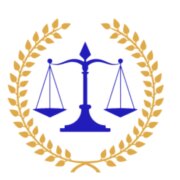Best Creditor Lawyers in Durban
Share your needs with us, get contacted by law firms.
Free. Takes 2 min.
List of the best lawyers in Durban, South Africa
About Creditor Law in Durban, South Africa
Creditor law, also known as Insolvency law, in Durban revolves around the provision of protection and the regulation of affairs between creditors and debtors. It applies in scenarios where individuals or businesses are unable to meet their financial obligations. The law strives to promote financial stability, protect the rights of creditors, and provide a legal framework for debt restructuring or liquidation.
Why You May Need a Lawyer
Whether you are a creditor seeking to collect outstanding debts or a debtor trying to protect yourself from aggressive creditors, you may require legal guidance. Common situations where legal help in Creditor law is needed may include debt recovery, defending against a sequestration application, filing or responding to a bankruptcy claim, debt restructuring negotiations, understanding complex legislation, or safeguarding your rights in credit agreements.
Local Laws Overview
The key legal systems relevant to Creditor law in Durban include The National Credit Act, No 34 of 2005 and The Insolvency Act, No 24 of 1936. These acts govern all forms of credit agreements, methods of debt recovery, rules for insolvency and bankruptcy, and the proceedings for voluntary surrender, compulsory sequestration, and rehabilitation. Understanding these laws can be complex and a specialist in this legal field can greatly assist with navigating these legal regulations.
Frequently Asked Questions
Can a creditor seize my personal assets to recover the owed amount?
Under South African law, a creditor may, in certain circumstances, seize a debtor's assets to recover the outstanding debt. However, this often requires a court judgment. A professional legal advisor can provide specific guidance.
How do I defend against a sequestration application?
A lawyer can help you to defend against an unfounded sequestration application by assessing your financial situation, preparing the necessary documents, and representing you in court.
What are my rights as a debtor in Durban?
All debtors have specific rights, including the right to apply for debt review under the National Credit Act or initiate voluntary surrender under the Insolvency Act. Legal guidance will ensure these rights are upheld and utilized correctly.
What is the difference between liquidation and sequestration?
Liquidation applies to businesses, while sequestration applies to individuals. Both processes involve the selling of a debtor's assets to pay outstanding debts.
What is voluntary surrender?
Voluntary surrender is a legal proceeding where a debtor applies to court to declare themselves insolvent because they are unable to pay their debts. It can protect against asset seizure and harsh legal measures.
Additional Resources
The South African Department of Justice and Constitutional Development provides a wealth of information on creditor and insolvency laws. Professional legal firms specialized in Creditor law or Insolvency law can also provide essential guidance and legal assistance.
Next Steps
If you require legal assistance in creditor law, you should engage a lawyer specializing in this area. They can provide you with comprehensive advice on your rights, obligations, and the best course of action based on your situation. Ensure you gather all relevant documentation related to your situation before your initial consultation.
Lawzana helps you find the best lawyers and law firms in Durban through a curated and pre-screened list of qualified legal professionals. Our platform offers rankings and detailed profiles of attorneys and law firms, allowing you to compare based on practice areas, including Creditor, experience, and client feedback.
Each profile includes a description of the firm's areas of practice, client reviews, team members and partners, year of establishment, spoken languages, office locations, contact information, social media presence, and any published articles or resources. Most firms on our platform speak English and are experienced in both local and international legal matters.
Get a quote from top-rated law firms in Durban, South Africa — quickly, securely, and without unnecessary hassle.
Disclaimer:
The information provided on this page is for general informational purposes only and does not constitute legal advice. While we strive to ensure the accuracy and relevance of the content, legal information may change over time, and interpretations of the law can vary. You should always consult with a qualified legal professional for advice specific to your situation.
We disclaim all liability for actions taken or not taken based on the content of this page. If you believe any information is incorrect or outdated, please contact us, and we will review and update it where appropriate.










